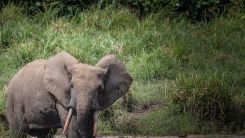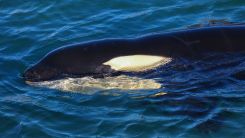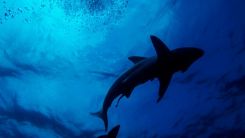
Mark Bustos


IMV Released Final Topline Results for Its DeCidE1 Clinical Trial

Air Filter Leader Filter King Summarizes Us Temperatures, and Which States Are the Hottest

Menopause-Related Employment Tribunals Increased Fourfold in the Last Three Years
Biofuel Extracted from Hazelnut Shells Show Potential as Renewable Energy Source
Cambridge Researchers Devise New Blockchain Impervious Even to Quantum Computers

'Tightening The Net': New Report Warns About 'Net Zero' Carbon Targets Distracting the Public
Skoltech Leads Open-Source Project Using Neural Networks to Generate Organic Molecule Nomenclature

Brain Technologies Unveils Groundbreaking 'Natural' Interface; Secures $50M Funding

ASSAf Launches COVID-19 Booklet; Explaining About the Disease, Responses and an Uncertain Future
Miniature Particle Accelerator Powers Free-Electron Laser, Opening Possibilities for Smaller, Cheaper FEL Setups
Unique Brain Structures Might've Helped Ancient Birds Outlive Nonavian Dinosaurs

Ivindo National Park Becomes Second UNESCO World Heritage Site in Gabon, Securing International Support for Conservation
Sunken Continent Theory Explains the Origin of Iceland; Could Affect Future Fuel Claims

Honeycomb Structures: Bees Keep Honey in Shapes Other Than Hexagons

Chilean Chinchorro Mummies Now Protected by the World Heritage List; Who Were They?

Portable Hydrogen Breath Tester from FoodMarble Passes Johns Hopkins Clinical Trial

Mangroves in Danger: Lack of Invertebrates, Other Species That Threaten Plant Populations
Native Wildlife Defend Their Territory From Invasive Species Documented in New Study

Coral Reef Health Gets New Model for Mapping, Monitoring; Shortlists Factors and Identifies Which Reefs Might Survive

COVID-19 'Long Haulers', Medical Experts Share Stories, Debunk Myths in New Book

Toa, the Baby Orca in Search of His Mother, Dies in New Zealand
Momentum on Planetary Scale: What Happens When Earth Suddenly Stops Spinning?

COVID-19 Delta Variant Is 'More Infectious and Replicates Faster', New Study Might Reveal Why

Fact Check: Mothers' Breast Milk Doesn't Carry Traces of Pfizer, Moderna COVID-19 Vaccines

Shark Intestines Have Spiral Structures That Function Like Tesla Valves, New 3D Images Reveal
How The Transcription Factor Guides the DNA in Specialized Cell Development
Wild Pigs Release More Carbon Dioxide Than Million Cars as Invasive Species Uproot Soils Everywhere
MixChannel: Satellite Images Can Now Be Processed with Minimal Datasets, Thanks to a New Technique from Skoltech

Inorganic Material With Lowest Thermal Conductivity Successfully Fabricated; Could Lead to Greener Energy Solutions
Most Popular

How AI Is Used in Weather Prediction: Smarter Forecasting Through Machine Learning

De-Extinction vs. Conservation Science: Which Approach Protects Biodiversity Most Effectively?

Geoengineering and Climate Intervention Science: Can We Really Engineer a Cooler Planet?

The Future of Clean Tech: Exploring the Next Generation of Renewable Energy Breakthroughs




